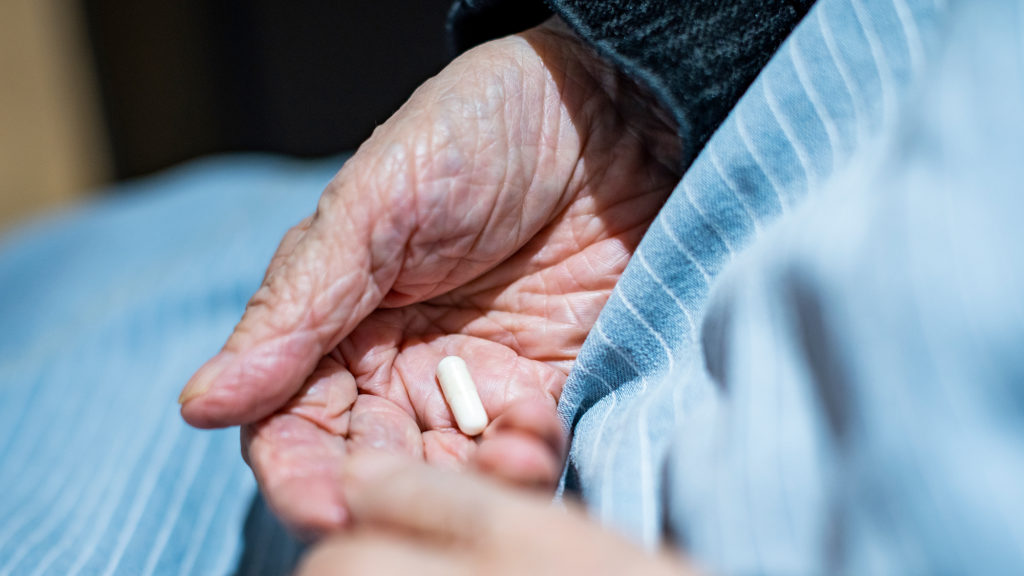
A new report highlights the high number of nursing home residents who are prescribed antipsychotic drugs. Authors of the report say that, in most cases, the drugs aren’t clinically justified.
About 250,000 nursing home residents — 20.4% exactly — receive the drugs every week, the Long Term Care Community Coalition report released Monday stated.
According to the report, 1 in 5 residents at a nursing home received antipsychotics in the third quarter of 2023. The amount of people who take the drugs varies based on their Centers for Medicare & Medicaid Services region. For instance, the rate is 28.1% in Illinois and 11.7% in Hawaii. The Kansas City region had the highest rate with 24.7%, and the Seattle region had the lowest with 17.7% of residents receiving antipsychotics.
The prescription rate is more than 10 times the rate of the population who will ever have a diagnosis considered appropriate for use of the drugs (such as schizophrenia). The LTCCC cited a 2022 report from the Department of Health and Human Services’ Office of Inspector General saying that potentially fraudulent schizophrenia diagnoses went up 194% between 2015 and 2019.
Antipsychotic drugs are linked to adverse outcomes in older adults, which can include falls, heart attacks, strokes, Parkinsonism and death. The drugs are often used to sedate patients with dementia instead of providing them with other forms of care.
“It is important for the public to be aware of the antipsychotic drugging rates of the nursing homes in their states and communities. With this information, families can make informed choices about care and state and federal leaders can identify potentially substandard care, abuse, and fraud,” the organization said in a statement.
A study from 2022 found that taking antipsychotics is linked to a higher risk of death in older adults with dementia, even if they have or don’t have cardiovascular comorbidities or diabetes.




